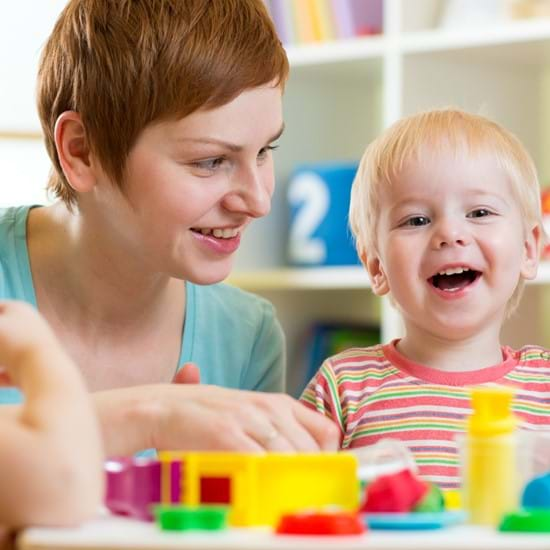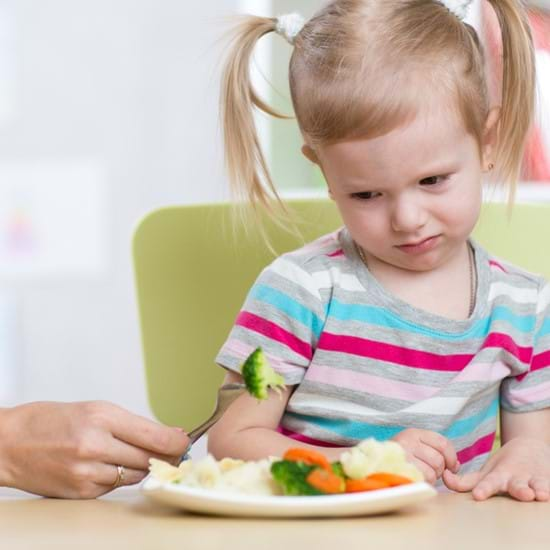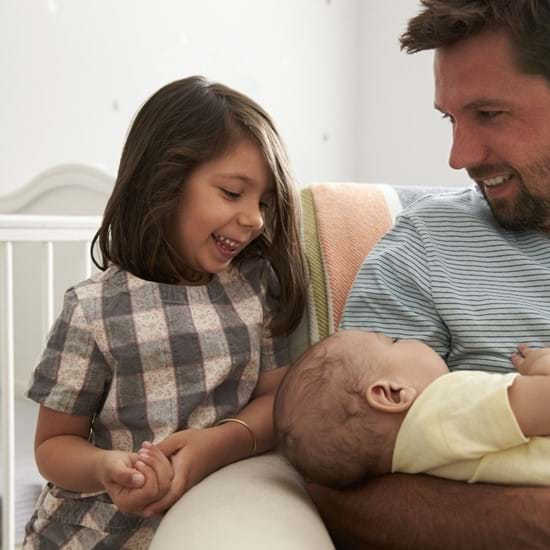
How to Favour Early Socialization

Written by: Nanny Secours
Like all parents, you probably want your child to fit in, to feel accepted and have friends. The good news is that you can encourage your child’s socialization practically from birth.
What is Socialization?
Socialization is the process of learning the social skills and rules to interact with others. Children usually won’t engage in significant relationships with other kids until the age of three or so, but you can still favour the development of their social skills from the moment your child becomes aware of his or her surroundings.
Forge a Strong Emotional Bond
Newborns love and appreciate your warmth. Hug them, rock them, speak to them softly in different tones and tend to their needs whenever they seem uncomfortable. These actions are key in building a strong emotional bond with your baby, creating a sense of security and comfort that will influence their future relationships positively.
Establish Eye Contact
Eye contact is the foundation of all social interactions, so making eye contact with your little one on a regular basis is beneficial. Although the eyesight of newborns is not fully developed, it improves daily. They can focus on your face at a close range (twenty centimeters or so) so be sure to lean in when you are interacting with them. During their second month, babies will naturally seek eye contact with others. The best way to catch their eye is to exaggerate your facial expressions, hold colourful toys near your eyes and play peek-a-boo.
Learning to Communicate
Listen and show interest in your little one’s babbles; repeat the sounds they make playfully. This little game teaches baby that conversation is a two-way street, thus favouring the gradual development of listening skills!
At around six months old, children start understanding a wider vocabulary. So talk away! Describe your actions and comment on everything you see. Even if baby has that dazed look and doesn’t seem to understand, language development is at work! This skill is crucial and allows children to express themselves clearly and enjoy enhanced social interactions.
Baby pointing is also an important milestone, as it allows baby to communicate and associate words with objects. You can foster this skill by pointing out things that interest your child and naming them (the cute puppy, the big airplane in the sky, and so forth). Your child will gradually mimic this gesture to communicate and express needs (like pointing to the bottle on the kitchen counter).
Differentiating Family from Strangers
Around eight months, babies go through a period of separation anxiety that can vary in intensity. In most cases, this results from a fear of strangers and translates into strong reactions to their parents leaving their sight. This may last for some time—ranging from weeks to months—and you may notice your child is shyer and clings to you in front of strangers. If this happens, be reassuring and help your child greet guests or new faces. Your presence is a soothing factor and provides the courage they need to interact with others. Once they show more confidence, you can gradually stop helping them.
Knowing How to Greet
After eye contact comes smiling and greeting, actions that favour the pursuit of interaction. Simply lead by example, smile back when baby smiles at you. You can gradually progress to physical greeting gestures (waving, shaking hands, blowing kisses, etc.) and finally verbal greetings. Don’t force your children to greet others if they refuse. Instead, suggest how they could approach in a more discrete manner and praise them when they exhibit a suitable reaction.
Practice
You’re the role model, meaning your attitude toward others will influence your child. If you interact comfortably with people on a frequent basis, your child will be more inclined to interact with others as well. Some children are shyer than others, but like many other things, social skills are developed with practice. Organize of playdates or other occasions for baby to be in contact with other children; this should encourage self-confidence!
Your child will grow, want to explore, develop independence and spontaneously want to reach out to others. To favour their social integration on their own, they will have to learn to respect others’ personal space, be polite, express themselves clearly, manage their emotions, share, show have self-control, etc. There is a wide array of skills that can help children interact with the people around them! This might seem like a lot work, but don’t worry: you’ll have more than enough opportunities to develop these skills. All you have to do is seize them!
Laury Boisvert, Master Practitioner – Family Coaching, B. Ed.
Member of the Nanny Secours Network


